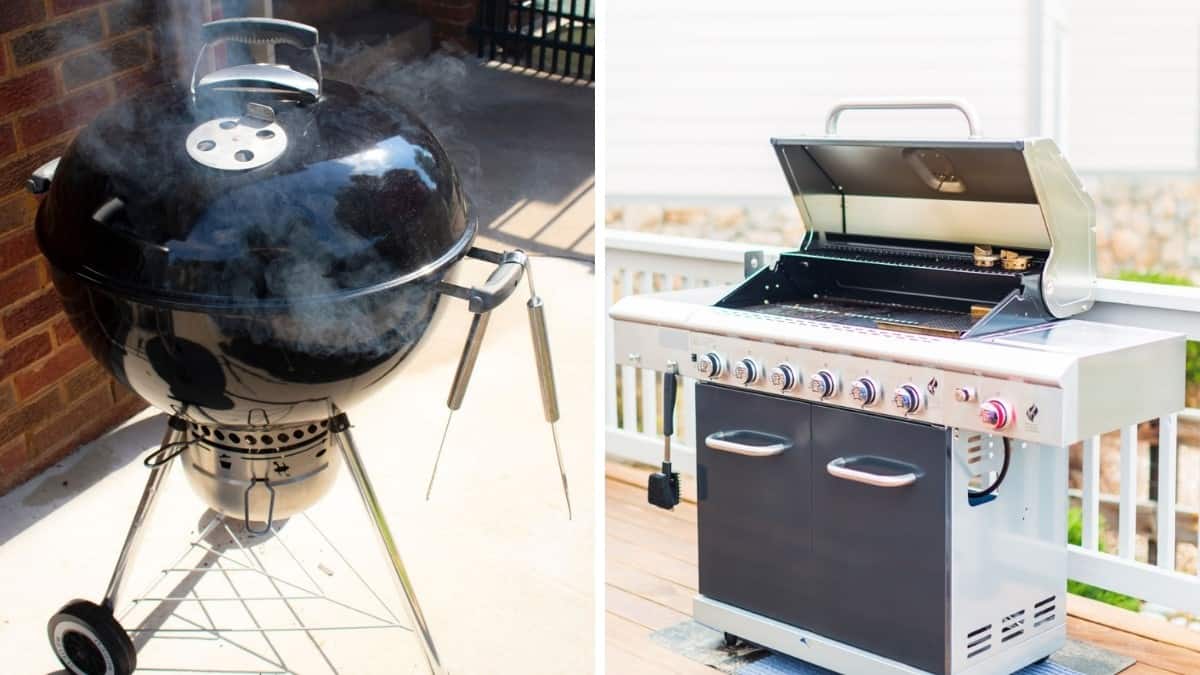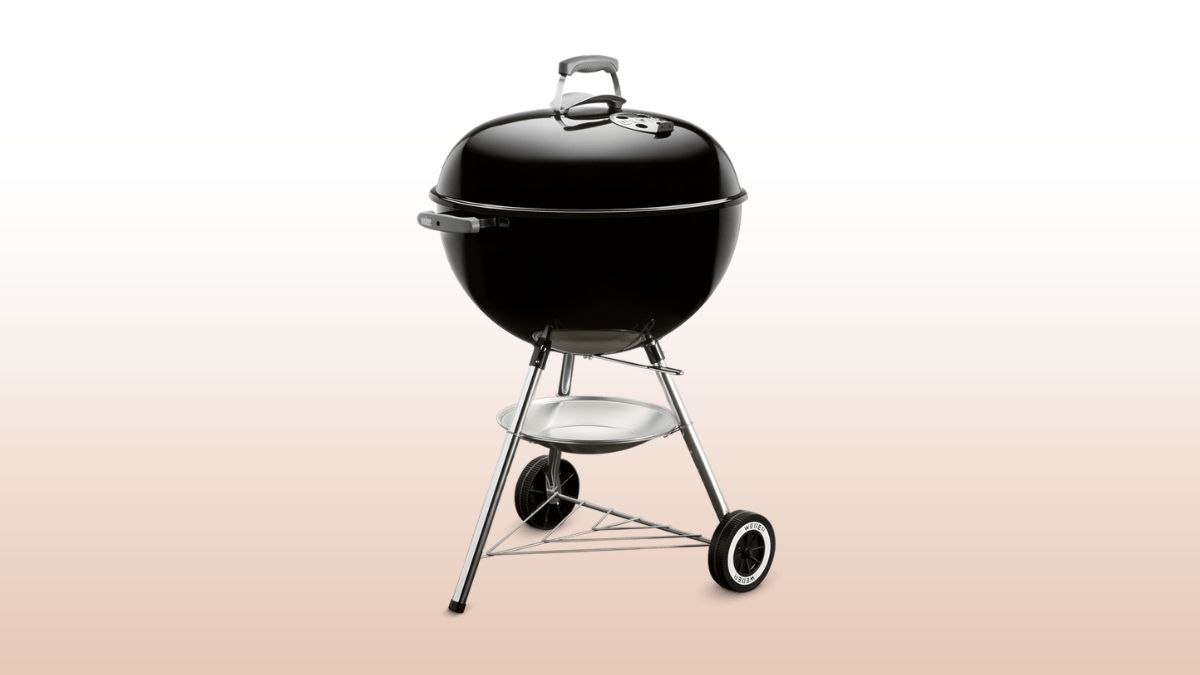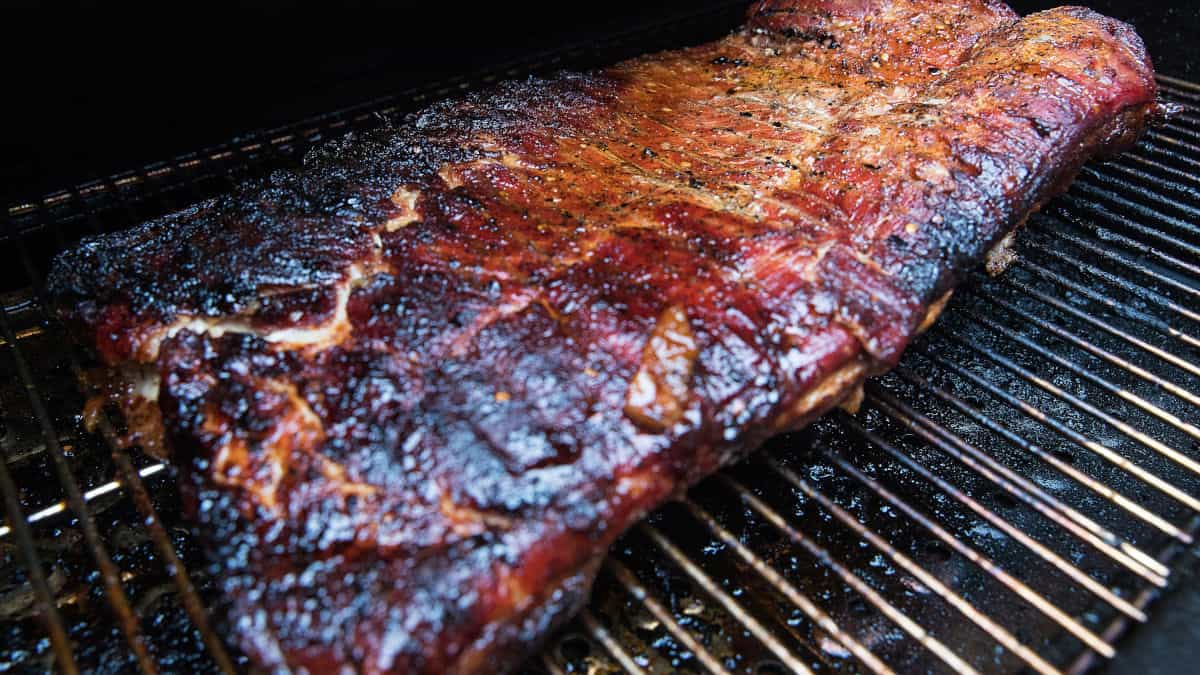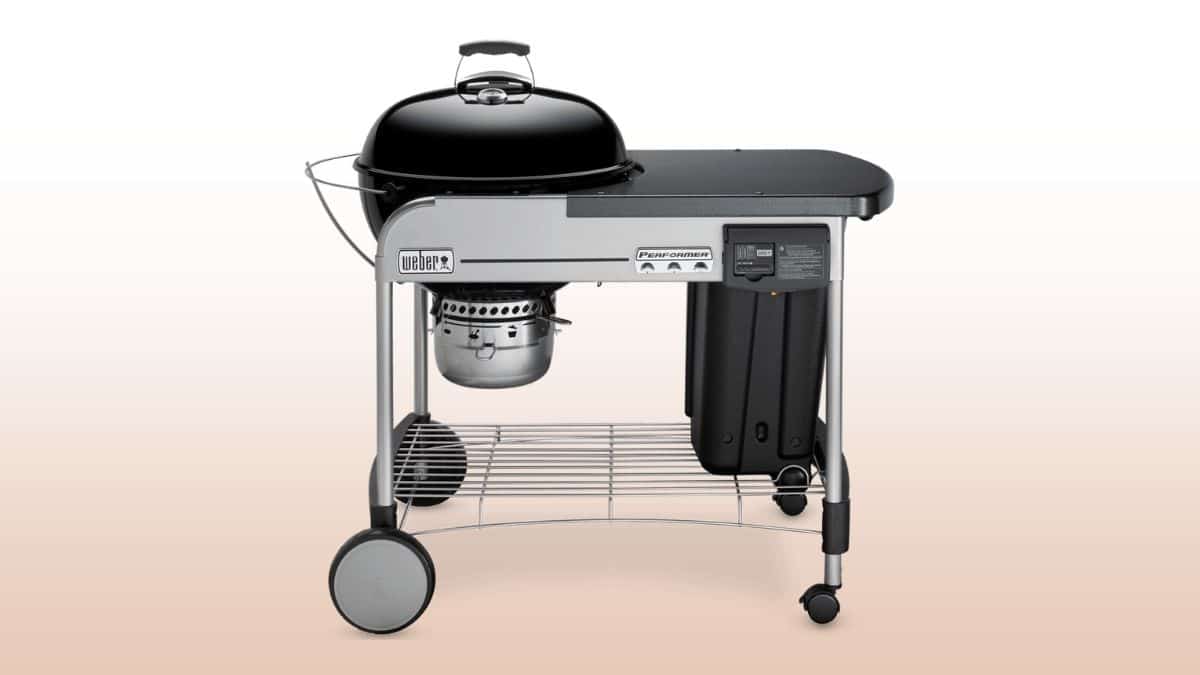Are charcoal grills really superior to gas? BBQ “Purists” imply you don’t get a proper flavor from a gas grill — some will even call it cheating.
On the other hand, gas grills offer convenience and versatility, so who’s to say which grill type is best?
In today’s quick piece, we’re comparing charcoal vs gas grills to pinpoint their differences and similarities. We’re also putting them head to head in the ultimate grill battle to see which grill comes out on top.
As always, this is all in the name of fun, and at the end of the day, you should choose the grill that suits you the most. If you’re still unsure of which grill to choose, maybe our battle of the best grill will help you out.
Charcoal vs Gas Grill: Comparisons
We’re going to dive straight into the facts here with a list of the main factors that go into buying a grill, and how each type compare to the other.
So let’s see which grill type scores the highest.
Initial Cost
One of the significant differences between gas and charcoal grills is the price range. Charcoal grills are available at very budget-friendly prices as well as incredibly high prices.
You can find a selection of the best charcoal grills available today in our guide for an indication.
Safe to say that regardless of the size of your budget, you’re sure to find a suitable charcoal grill — given the fact that you’re ready to settle for a more basic model.
Gas grills have a higher price point than charcoal grills. Whether you’re looking at the cheapest or most expensive unit, it’s sure to be more costly than a charcoal grill.
Click here to see and get an indication of what’s available when it comes to the best gas grills on the market.
Operating Costs
Charcoal grills run on renewable fuel and will require a steady supply throughout the cook. Depending on how long you’re grilling, you will likely need to refill at least once. In saying that, charcoal (whether lump or briquettes) is an affordable fuel.
Gas grills may run on propane or natural gas. With a propane tank, you’re faced with the same issue as the charcoal grill: Shortage. If you embark on a long grill session, make sure you have a replacement tank ready to go when the first one empties.
Now, gas grills do have an advantage over charcoal ‘cues. You see, most gas grills can be hooked up to the gas line of your home. This provides you with an endless supply of very affordable fuel — feel free to grill the entire summer!
User-Friendliness
What’s easier than pressing an electronic ignition button? Gas grills are ready in no time.
Charcoal grills can take up to 45 minutes to get started. You’ll need a chimney starter, lighter, lump charcoal or briquettes, and patience.
Once the fire is alive, you have to wait for the grill to heat to the right temperature — nevertheless, charcoal grills are not for impatient grillers!
Impact on Flavor
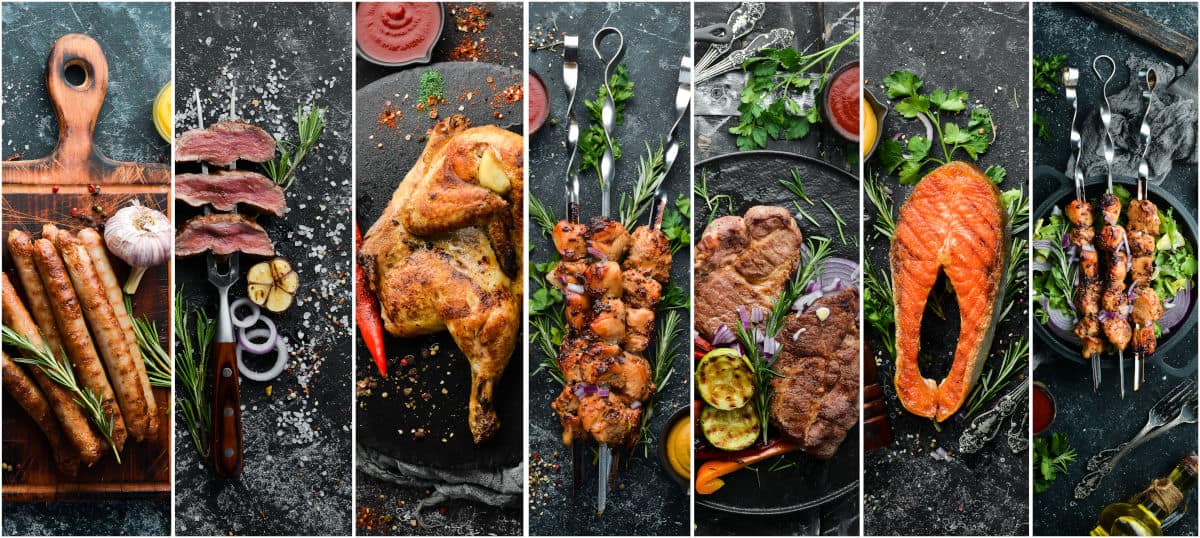
Charcoal grills will naturally impart a smoky, rich flavor that’s distinct with BBQ food. This is all due to the fuel. Charcoal (lump or briquettes) are made of carbonized wood — as the fuel burns, it creates smoke and adds another depth of flavor to your steak.
Propane, on the other hand, is completely odorless. In other words: It doesn’t add anything to your food. In saying that, propane does contain an additive with an odor; this is to alert you when there’s a leak. If you notice your food is tasting off, check the fuel to make sure it flows properly.
When cooking on a gas grill, you have to add flavor to your food in the sense of seasonings, rubs, injections and more. In contrast, you can get away with a little less on a charcoal grill as the food will already be infused with aromatic smoke.
Cleaning
Cleaning the grill after a long cookout isn’t something we look forward to, but it’s necessary. Unfortunately, neither gas nor charcoal makes the job any easier. Both grills require a good scrub with soap and water — you should also plan to give them an out-and-out clean at least once a year.
A gas grill will have slightly more pieces to disassemble (burners, deflectors, flavorizers). You have to clean, rinse, and dry each component individually for a thorough clean.
Charcoal grills will have more ash and debris that you need to clean out — apart from that, there’s only the grate and pans that need a scrub.
You can begin cleaning a gas grill while it cools down; however, you shouldn’t attempt to clean a charcoal grill until it’s cooled. The ashes will be scorching and become a fire hazard if you dump them before they’ve cooled.
There’s an abundance of cleaning agents and tools available for both gas and charcoal grills. In saying that, many charcoal-enthusiasts will tell you that all you need to clean your grill is a ball of foil.
Temperature Control
Mastering a charcoal grill isn’t a walk in the park — it requires practice to fully know how to tweak the vents for the perfect airflow, how much fuel to add, when to refill, and more.
Gas grills are super easy to control. The burners produce an even heat source that you can control by adjusting the gas flow (similar to a gas stove). However, if you want to do indirect cooking, you need to learn how to set your grill up with hot and cool zones.
Temperature Range
Charcoal grills have an incredible temperature range — from low temps to scorching 1200 degrees Fahrenheit or more.
Gas grills are more controlled or tamed. These will generally operate between 225 and 600 degrees Fahrenheit, which is more than enough to cover most grilling needs.
Versatility
Charcoal grills are incredibly versatile. The temperature range enables you to do high-heat searing or low n slow smoking — all that’s needed is adjusting the vents and fuel placement.
Gas grills require additional components if you want to smoke.
A dedicated smoker’s price can run up to a few hundred dollars; therefore, if you want to smoke, consider getting a charcoal grill that can do both.
On the other hand, both grill types can easily be used for roasting, and you can easily set them up for two-zone grilling.
Pros and Cons of Charcoal Grills
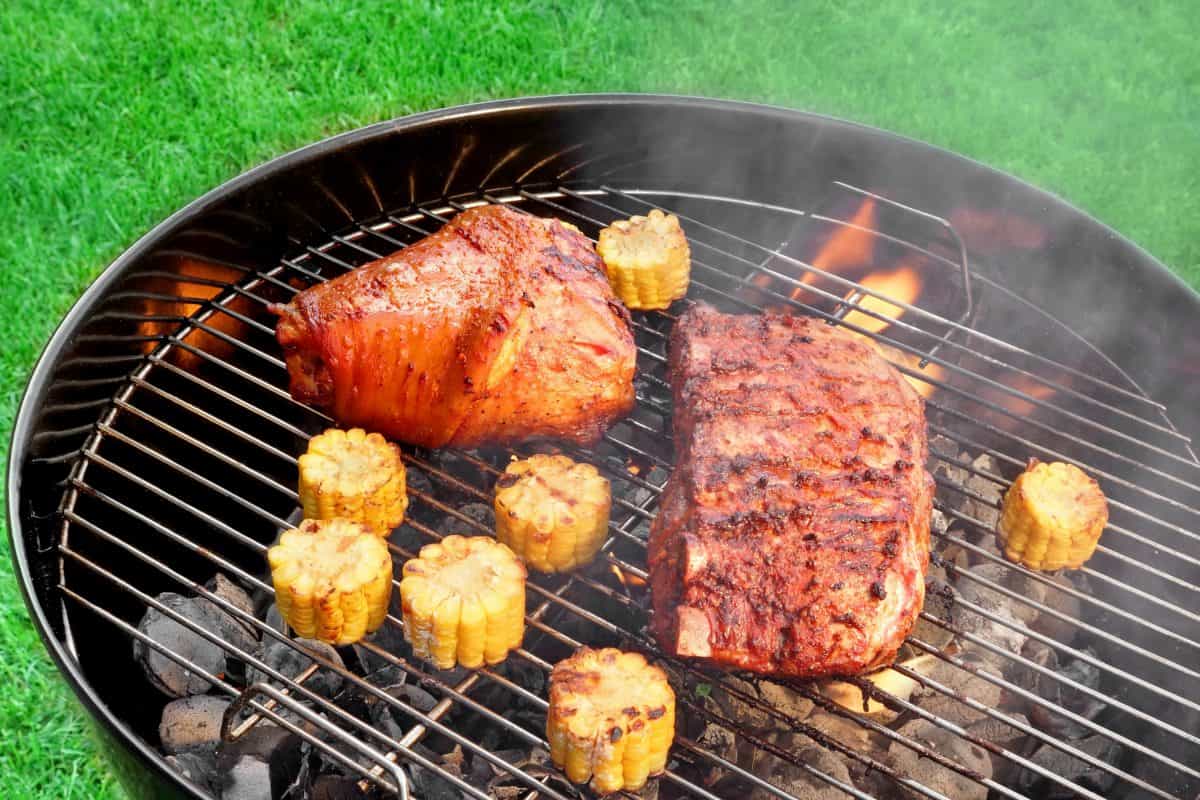
As you can see, gas and charcoal grills differ in more than a few ways, and each type has its advantages and disadvantages. Let’s sum it all up before we finish off.
Pros
- Naturally enhances the flavor of your food without the need for much seasoning or added flavors.
- Very affordable price range, whether you’re looking at the high or low end.
- The wide temperature range enables you to cook pretty much anything as long as it fits on the grates.
Cons
- The ash and smoke leave a mess.
- You can’t clean it right away, which means you’ll likely be emptying ashes with a stomach full of delicious barbecue.
- The smoke gets everywhere — in your hair, eyes, not to mention lungs!
- Charcoal can be expensive in the long run, especially if you’re a frequent griller. You also need to refill the grill more often.
Pros and Cons of Gas Grills
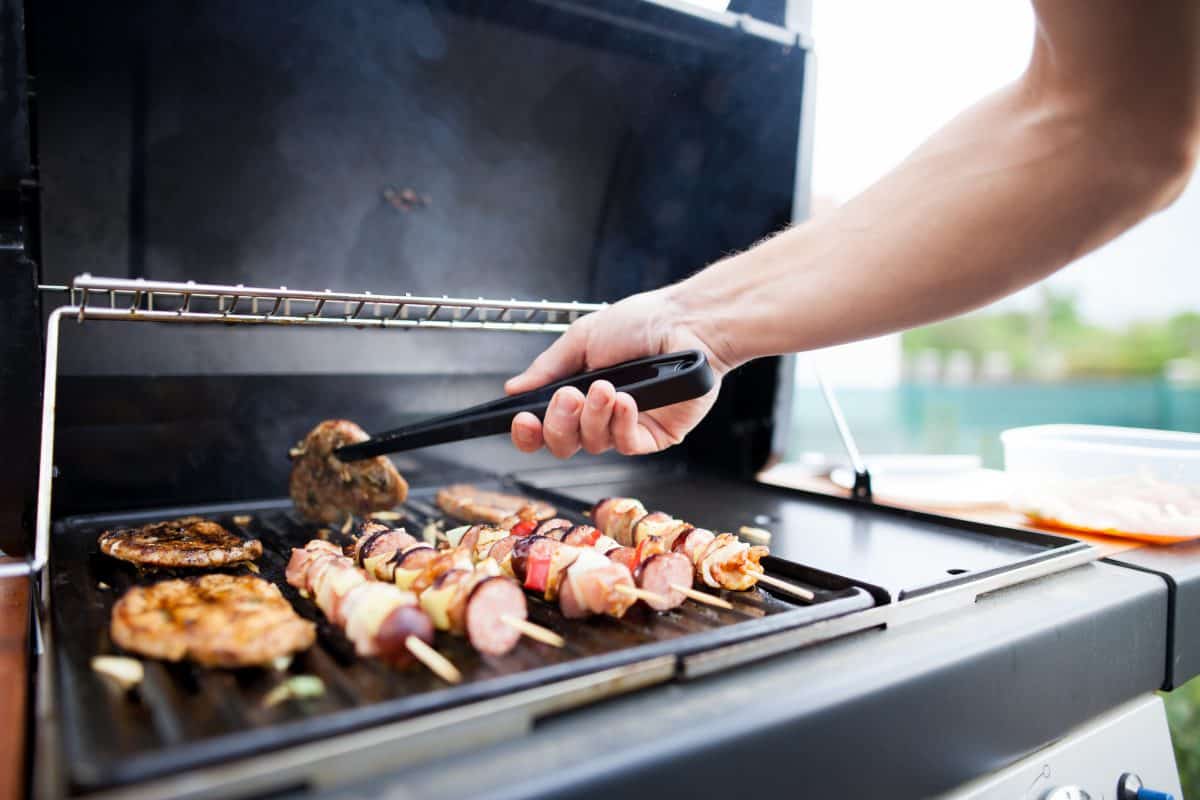
Pros
- Very quick to use, meaning dinner will be on the table in no time.
- Can be cleaned before completely cooled.
- Can run for longer before the tank is empty — if you’re using natural gas, you’ll have an endless supply.
- Environmentally-friendly.
Cons
- Not for smoking.
- Lower maximum temperature — searing isn’t always possible.
- Gas leakage risk. This can induce health issues such as nausea, vomiting, dizziness, weakness, fever and increased heart rate.
- Gas is a highly flammable substance and should be handled with care.
The Winner Is
Charcoal vs. gas grill, what do you think? Which one would you go for?
Both grill types are at the top of the leader board, making it hard to choose one. However, we will say that the charcoal’s added flavor is what makes it a winner in our book.
But, if you fancy a more convenient way of grilling, a gas grill is ideal. They’re easy and quick to start up, and you can be done cooking and cleaning before you sit down to enjoy your well-deserved meal.
As always, do leave any questions you might have in the section below, and we’ll get back to you. Let us know which grill you prefer to cook with.

